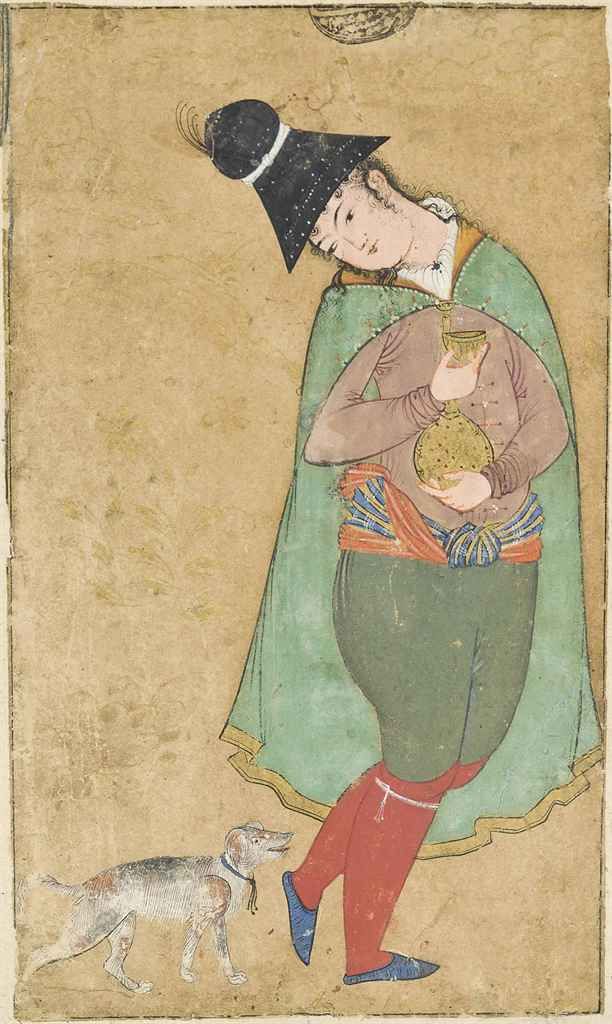FWP:
The verse is inshaa))iyah, framed as a question, either rhetorical or serious. There is a hint of narrative, a sort of back-story: The speaker has known this youth since he was a boy. But as a boy, he would never let the speaker tell him-- what? One possibility: the favorite fairy tales, the best tall tales, the kind of stories that adults often tell to children they are fond of. The implication would be that this child just never liked the speaker; and if he irrationally disliked him even then, why would he change now that he's a youth?
Another possibility: that he would never listen to 'my story' in particular-- to the intimacy-creating personal story, whatever it would have been. The implication in this case would be that this young man has been rejecting the speaker's attempts at intimacy for years, and is hardly likely to stop now.
A third reading: that the question is a serious one, worth considering. It's true that when the boy was a child he disliked the speaker, but now he's older. Might he have learned more about the world, might he now have some glimmering of insight into the nature of passion, might he even take the speaker more seriously now than he did then? In support of this reading is the omission of the little bhii that might so easily and colloquially have come after kuudakii me;N . It's not that 'even in childhood' he didn't pay any attention, it's that 'in childhood' he didn't pay any attention. So the door is open for a genuine question, and a possible change of heart on the part of the of the beloved youth.
In this verse, the beloved is clearly a male adolescent;
for more such verses, see {9,2}.

Nazm:
In childhood the ardor for listening to stories is usually very great. Despite this, he never listened to my story. Now, in his youth, what hope would I have from him? (188-89)
== Nazm page 188; Nazm page 189